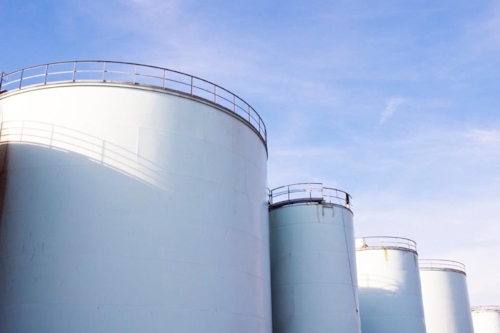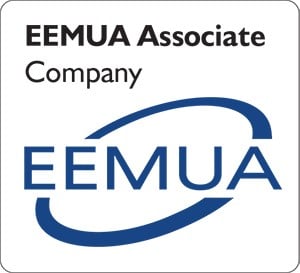
Comprehensive Tank Inspections for Liquid and Gas Storage
Receive a quote tailored to your needs
Kiwa distinguishes itself with a flexible approach to tank inspections, adapting to the unique needs of both existing and potential customers. Periodic scheduled inspections provide a structured approach often used for existing customers. These regular inspections are designed to ensure the long-term integrity of storage tanks and allow to implement proactive maintenance plans.
On the other hand, we also employs an ad hoc/opportunity-based approach, especially when issues arise. This flexible model allows for quick responses to emergencies or unexpected needs, serving both new and existing customers.
Legislation for tank inspections
Legislation regarding tank inspections is strictly enforced to ensure safety, environmental protection, and technical compliance. The legislation, imposes clear requirements for periodic inspections of above-ground storage tanks containing hazardous substances. These inspections must meet stringent standards and be conducted by recognized inspection organizations.
Standards and approaches
Comprehensive risk-based approach
Our comprehensive approach to tank inspections is rooted in the American API 653 and EEMUA 159 codes, resulting in a Comprehensive Risk-Based Approach.
Customer-Specific Regulations
This approach not only ensures that all relevant checks are carried out accurately but also that the risks associated with the equipment are effectively managed. By integrating this methodology, we strive to ensure both the structural integrity and operational safety of storage tanks.
Additionally, we are flexible and customer-oriented, and if desired, we conduct tank inspections according to the specific standards imposed by the customer, always in close consultation with the customer. This approach allows us to provide customized solutions and fully meet the specific needs and requirements of our customers.
4.0 Tank Inspections
Kiwa distinguishes itself in tank inspections through a highly structured and effective approach, focusing on the Damage Mechanism-Based Methodology, Custom and Targeted Inspections, and Efficient Technology-Based Solutions:
- Damage Mechanism-Based Approach
- Identification of specific damage mechanisms relevant to the storage tank in question.
- Detailed analysis of potential risks and their impact on the tank's integrity.
- Custom and Targeted Inspections
- Tailored inspections that are aligned with the unique characteristics and requirements of each storage tank.
- Targeted efforts to enhance efficiency and provide focused solutions.
- Efficient Technology-Based Solutions
- Utilization of advanced technologies and instruments for precise measurements and analyses.
- Efficient data collection and reporting to optimize the inspection process.
Best-in-class asset management
This approach means that we strive for the highest level of quality and efficiency of assets, with a specific focus on storage tanks. Key features of this standard are:
Optimization of asset performance
- Kiwa focuses on maximizing the performance of storage tanks through thorough inspections and targeted measures to improve structural integrity.
Risk management and compliance
- The best-in-class approach involves extensive risk analyses, ensuring that Kiwa meets both legal standards and the specific needs of the customer.
Advanced technologies
- Kiwa integrates advanced technologies into the inspection process to collect accurate data, resulting in an in-depth evaluation of the tank's condition.
Continuous improvement
- The best-in-class asset management standard emphasizes a culture of continuous improvement, with Kiwa committed to constantly optimizing processes and procedures.
Certification Process
- Intake and inventory
All relevant information is collected and inventoried regarding the tanks to be inspected. This includes technical specifications, documentation, inspection history, and any specific customer requirements or objectives.
- Defining plan and techniques
An inspection plan is drawn up that defines the scope, required techniques and methods, and procedures to be followed. This involves identifying potential risks and determining the necessary expertise and resources.
- Execution
In this step, the inspection plan is executed. This involves deploying qualified inspectors and technicians to perform the on-site inspection according to the established procedures and methods.
- Digital delivery & evaluation
Upon completion of the inspection, the collected data is analyzed using a 3D visualization tool to determine if all requirements have been met and if any deviations or issues have been identified.
- Adjusting inspections and periodicity
Based on the results, adjustments are made to the inspection procedures, techniques, or periodicity. This may include recommending additional inspections or adjusting the frequency of future inspections based on the results and customer needs.
Kiwa conducts thorough tank inspections in various sectors, combining expertise and accuracy to ensure the safety and compliance of storage tanks. Whether in the petrochemical industry, the food sector, or other industries, Kiwa guarantees reliable inspection services that meet the highest standards.
Industries for Tank Inspections
Cross-industry expertise
Kiwa excels in tank inspections by offering broad and in-depth expertise relevant to various industries, including petrochemicals, pharmaceuticals, the food industry, and more.
We provide customized solutions that closely align with the specific requirements and standards of different sectors. Whether it's extensive tank farms in the petrochemical industry or hygiene standards in the food industry, Kiwa adapts its inspection approach for optimal results.
Petrochemical industry
In the petrochemical sector, Kiwa is a leading player in performing tank inspections, with a differentiated approach for both large and small companies:
- For larger companies with extensive tank farms, Kiwa offers specialized inspection services to ensure safety and compliance.
- For smaller companies with tank pits housing one or more tanks, Kiwa collaborates with environmental experts to assess what is permissible for the expansion of these tank pits, with environmental inspections being an integral part.
In cases of potential tank degradation, for both small and large companies, Kiwa provides the necessary support by giving the involved parties time to develop a well-considered action plan and investment program in consultation with environmental experts. This approach not only ensures safety and environmental compliance but also enables companies to manage and improve their tank infrastructure sustainably.
Pharmaceuticals
In the pharmaceutical industry, a thorough and precise approach to tank inspections is essential to ensure the integrity and quality of storage tanks. Kiwa, as an experienced inspection company, provides specialized services that meet the stringent standards and regulations of the pharmaceutical sector. The inspections include verifying material compatibility, minimizing contamination risks, and ensuring hygienic conditions. Kiwa’s expertise helps maintain the highest pharmaceutical standards, which is crucial for the safe storage of raw materials and finished products in this critical industry.
Safety and sustainability
Kiwa serves as a reliable partner for companies across various sectors by ensuring safety and compliance. The overarching operations of Kiwa reflect its commitment to promoting safety and sustainability in diverse industrial contexts.
Transport
Legislation regarding tank inspections is in most countries strictly enforced to ensure safety, environmental protection, and technical compliance. It imposes clear requirements for periodic inspections of above-ground storage tanks containing hazardous substances. These inspections must meet stringent standards and be conducted by recognized inspection organizations.
Food industry
In the food sector, Kiwa is dedicated to performing tank inspections with a specific focus on the complex composition of pressure and steam devices often connected to tanks. Unlike sectors with hazardous substances, tank inspections in the food industry are less focused on NDT inspections and more on ensuring the safety and compliance of pressure and steam devices. Kiwa uses its expertise to ensure that these devices meet the applicable standards and regulations, emphasizing minimizing risks associated with pressure and steam systems. This specific approach helps ensure the reliability and safety of tank infrastructure in the food sector, focusing on maintaining the optimal operation of connected devices.
Other Industries
Kiwa holds a prominent position in tank inspections and is active not only in the previously mentioned sectors but also in numerous other industries. Whether it is the chemical sector, logistics, manufacturing, or other industries, we offer comprehensive tank inspection services. Kiwa’s extensive experience enables it to provide customized solutions for the specific needs and standards of various industries, making it a versatile and reliable partner for companies across different sectors that depend on safe and optimized storage tank infrastructure.
New Construction Tanks
If you are building a storage tank, it is crucial to choose an inspection partner for both current and future inspections. There are two types of new construction tanks. Both types offer different possibilities, with the choice between a prototype and a one-off approach depending on the specific requirements and preferences of the project. Kiwa is ready to inspect and homologate both prototypes and individual new construction tanks with expertise and precision.
Application of NDT techniques after several years
Initial inspections are always carefully conducted to ensure that storage tanks meet strict standards. Over time, typically between 5 and 10 years, certain observations may be noted during regular inspections for a specific tank. If this is the case, Non-Destructive Testing (NDT) techniques can be used to better frame this.
By choosing Kiwa as your inspection partner, you ensure smooth collaboration and streamlined process, resulting in the fastest and best option, both now and in the future.
What you need to know
Kiwa offers several techniques for determining the condition of a tank. These range from intrusive methods, which of course provide the best results, but require the tank to be emptied, to non-intrusive methods.
Below you find a summary of the techniques available:
- Floorscan
MFL (Magnetic Flux Leakage) system for corrosion testing of carbon steel bottom plates - MT Magnetoscopy
Conventional method for inspecting weld cracks - ACFM or TECA inspection
Electromagnetic method for inspecting weld cracks, replacing the MT method and enabling depth to be determined. Possibility of inspecting coated surfaces. Requires little preparation and no coupling agent. - Ultrasonic wall thickness measurement (UT)
Conventional wall thickness measurement - AUT/Corrosion mapping
Corrosion mapping using semi-automated scanners with conventional ultrasonic probes or multi-element probes (UTPA). - VIPER + UT
Remote-controlled ultrasonic wall thickness measurements. For inspecting tank walls or roofs, for example. - Vacuum testing
Leak testing of welds. - Laser profilometry
Various laser measurements are available to detect deformations or determine the severity of corrosion in corroded areas. - LRUT + PA Edge Scan
Non-intrusive inspection method for checking the critical area of the tank's bottom/shell from the outside of the tank.
EEMUA 159 – Inspection, maintenance and repair of above ground flat bottomed storage tanks
EEMUA 159 – Inspection, maintenance and repair of above ground flat bottomed storage tanks.

Floorscan - semi-automatic tank bottom inspection
Optimize tank reliability with Floorscan: thickness measurements, inspections, and repairs. Vinçotte (member of Kiwa Group) is ready.

Commissioning and periodic inspection of storage tanks for hazardous liquids
Would you like to inspect your above-ground and underground storage facilities for hazardous liquids? Vinçotte (member of Kiwa Group) inspects your equipment before it is put into service, and periodically afterwards.

Additional information
EEMUA Member
